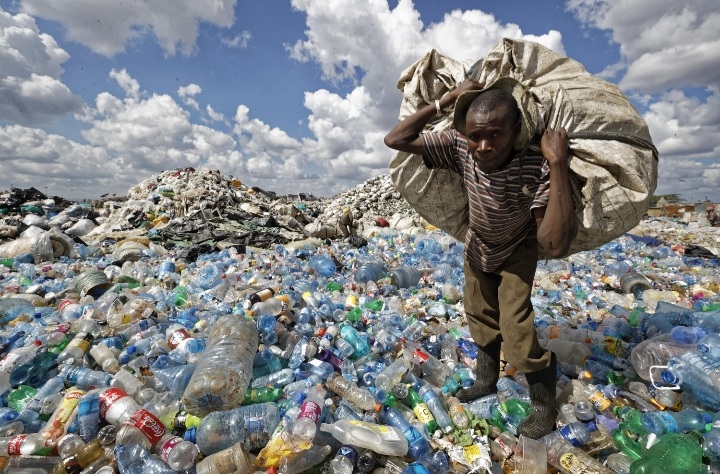World Environment Day: A Holistic Approach to Tackling the Global plastic Pollution Crisis

The traditional notion of recycling as the solution to excessive plastic production is no longer feasible. Global recycling capacity falls short of the demand created by the incessant cycle of extraction, production, and waste.
Consequently, developing countries are burdened with mounting plastic waste as affluent nations export their recycling overseas. Moreover, the recycling process itself poses its own set of problems, such as the contamination of subsequent plastic batches with toxic chemicals. To address the plastic pollution crisis effectively, a more sustainable approach is needed.
Reduce
Curbing Plastic Production To stem the influx of unnecessary plastic, manufacturers must reduce their production of plastics that cannot be collected, reused, or recycled.
Specifically, attention should be directed towards eliminating items like multilayered sachets, thin films, and wrappers. Implementing global caps on plastic production and limiting its usage to reusable products and packaging would alleviate the strain on recycling systems.
Reuse
Extending the Lifespan of Plastic Maximizing the use of existing plastic products and packaging decreases the demand for new manufacturing and reduces the overall waste sent for recycling. Governments can play a vital role by enacting mandates for reusable cups and bottles, with establishments providing and facilitating the return of reusable packaging.
Substitute
Exploring Alternatives While plastic alternatives like metals, glass, and paper exist, there is no universally sustainable substitute. The suitability of alternative materials depends on their intended use. A comprehensive assessment of the environmental impact across the entire life cycle is necessary to ensure that any alternative material does more good than harm.
Internalize the True Costs The actual cost of plastic, considering environmental damage and human suffering resulting from pollution, exceeds the price paid by consumers. By incorporating these hidden costs into the price of virgin plastic through measures like taxation, the economic viability of alternatives can be enhanced.
Responsible Recycling plays a role in keeping plastic in the economy and temporarily delaying the need for more virgin plastic. However, recycling should not be seen as a justification for continued plastic production.
Manufacturers must produce recyclable plastics using safe and clean methods, while toxic additives should be banned. Proper labeling can empower consumers to make informed decisions, reducing contamination in recycling streams.
Ethical Waste Management Plastics sent for recycling should be treated responsibly, ensuring that infrastructure exists to manage the waste in the destination countries. Banning or restricting waste exports would mitigate the environmental hazards posed by poorly managed plastic waste. Furthermore, policies should be implemented to protect and improve the livelihoods of informal waste workers, who currently perform a significant portion of global recycling.
The global plastic pollution crisis demands a comprehensive approach that transcends the traditional reliance on recycling. By focusing on reducing plastic production, encouraging reuse, exploring alternative materials, internalizing costs, promoting responsible recycling, and prioritizing ethical waste management, we can work towards a sustainable future. International negotiations should address these critical areas to forge an effective treaty to combat plastic pollution, with a strong emphasis on banning unnecessary plastics, toxic additives, and waste exports, while fostering reuse and repair initiatives.
